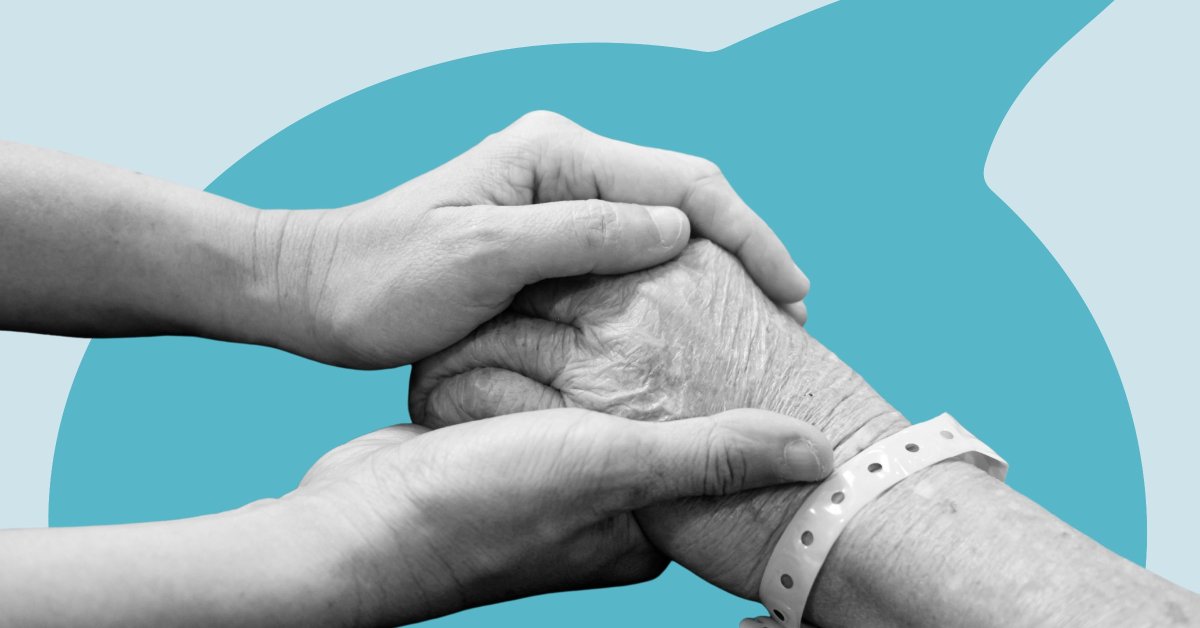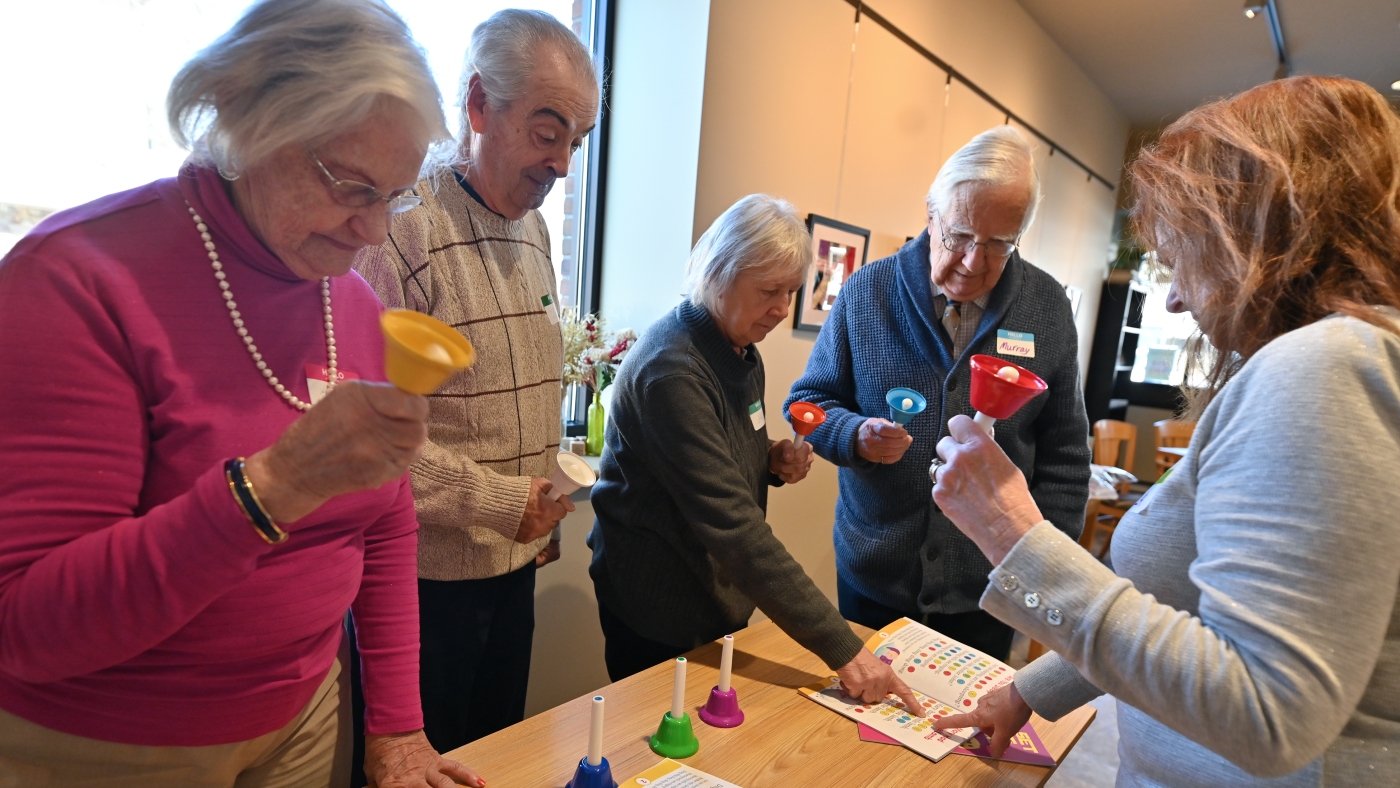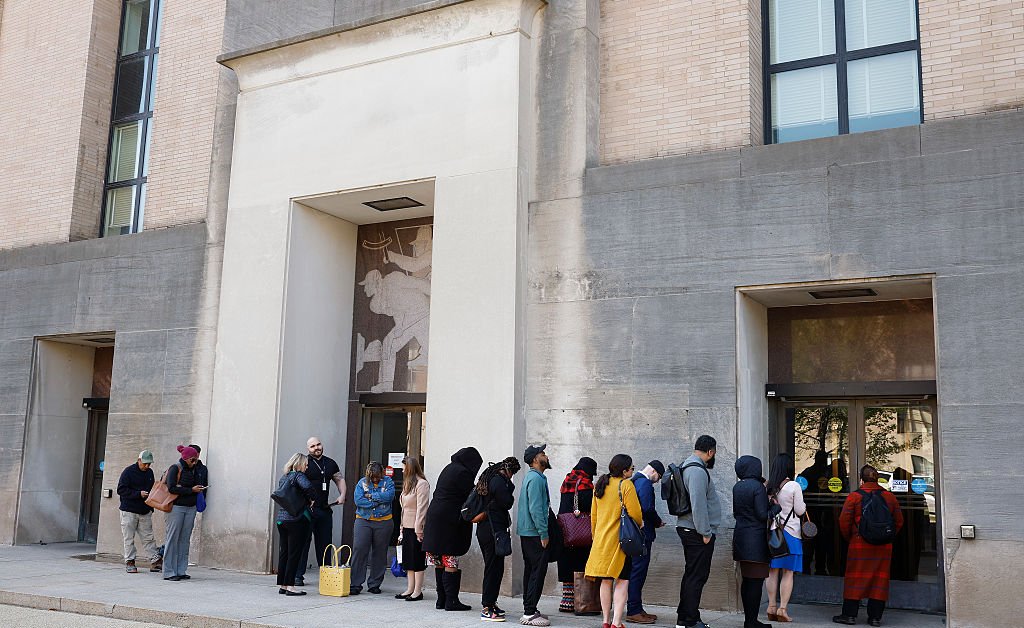When Katie Thurston was identified with Stage IV metastatic breast most cancers earlier this 12 months, at age 34, folks stored telling her they knew somebody with the identical analysis. Solidarity, you would possibly suppose. A useful method to relate. Not precisely: Their good friend or member of the family had died.
This state of affairs is “fairly recurring,” says Thurston, who starred on season 17 of The Bachelorette, and whereas folks have good intentions—they need you to know they’ve expertise with what you’re going by way of—the comment doesn’t land properly. “We perceive that demise is a chance on this analysis,” she says. “I needn’t hear that.”
Thurston has been on the receiving finish of numerous outreach and opinions since she shared her breast most cancers analysis—from strangers on-line, in addition to folks she is aware of in actual life. Whereas death-related tales are notably painful, there are many different feedback that fall in need of useful.
Communication slip-ups on this space are frequent, specialists say. When a beloved one is identified with most cancers, folks typically wrestle to determine easy methods to specific their help, main them to journey over their phrases or maintain again from saying something in any respect. “The information I’ve to again that up is all of the folks in my workplace who say, ‘Individuals don’t know easy methods to speak to me,’” says Felicity Harper, a medical psychologist at Karmanos Most cancers Institute in Detroit. “It’s very tough, except you’ve been by way of it or have some body of reference, to actually know what to say. You don’t wish to say the unsuitable factor, however you don’t know what the suitable factor is.”
Right here’s what to keep away from whenever you’re speaking to somebody identified with most cancers—and what to say as a substitute.
Make actual and significant contact
Once you hear a few good friend or member of the family’s analysis, you would possibly default to saying how sorry you might be. “They’re going to listen to that one million occasions,” Harper says. However “nobody is sorrier to listen to that they have been identified with most cancers than the most cancers sufferers themselves.”
As an alternative, she recommends phrasing your message like this: “I heard about your analysis. I’m considering of you, and I’m right here for you.” It’s additionally useful so as to add that you just don’t anticipate a response—or to easily put together your self to not obtain one. “When you’re sick and also you get all these playing cards or texts, it makes you’re feeling great, however you additionally don’t need the strain of getting to answer all people,” Harper says. When you haven’t heard again, “attain out once more in one other couple weeks or a month. It’s simply being constant.”
Don’t reply with poisonous positivity
The No. 1 grievance Harper hears from most cancers sufferers is that different folks attempt to inform them easy methods to really feel—and it inevitably includes considering positively. “You’re going to beat this!” they may say. “Don’t fear. You simply have to remain constructive.” Individuals typically guarantee Thurston that every thing occurs for a motive or promise that every thing shall be OK. “It virtually belittles the fact and feelings {that a} most cancers affected person goes by way of,” she says.
Having most cancers means tackling a variety of feelings, typically all throughout the identical hour: anxiousness, worry, hope, uncertainty, disappointment, and anger, only for starters. “When somebody is having a tough time, our inclination is commonly to wish to sort things and say, ‘Oh, don’t really feel dangerous,’ when actually what they want is area to really feel their emotions,” Harper says. The sufferers she sees typically inform her that they really feel like they’re doing their most cancers expertise unsuitable as a result of they will’t keep constructive—which makes them really feel responsible, or like they’re failing. That’s exacerbated by feedback like, “When you simply thought positively, you’d be doing higher,” or telling somebody that their stress is making them sicker.
Learn Extra: 10 Methods to Reply to Somebody’s Unhealthy Information
As an alternative, Harper advises, make it a degree to hear with out judgment. Reasonably than invalidating them by downplaying the gravity of the scenario, help your family members by telling them: “Gosh, that sounds scary. That should be so exhausting.” Then stick by their facet as they expertise the whiplash of these ever-changing feelings.
Though it’d really feel difficult, it’s key to permit the one you love the area to speak freely about no matter they need—even the particularly exhausting stuff. If a most cancers affected person’s illness reaches a complicated stage, the folks closest to them are additionally scared, in order that they attempt to shut down these conversations: “You don’t want to consider your funeral plans.”
“We have got to discover a method to let that affected person discuss it, and possibly meaning we have to go speak to anyone about our personal emotions,” Harper says. “That’s for us to cope with individually.”
Verify earlier than providing recommendation
Individuals with most cancers typically get fed up by their family members telling them what to do. The phrase “ought to” comes up quite a bit, Harper says: “You must see this physician! You must attempt that therapy plan! You must put these dietary supplements on autoship.” Translation: “I don’t belief that you just’re getting excellent care, or that you realize sufficient about what’s greatest for you.”
Normally, it’s a good suggestion to keep away from providing options, well-intentioned as they is likely to be. “The factor I at all times say to sufferers is, you may inform these folks, ‘Look, whenever you’ve had most cancers, you may come again and inform me what to do,’” Harper says. “Till then, the very best factor is to permit the affected person to be the skilled on how they’re feeling,” and the methods they’re managing their illness.
Learn Extra: How you can Reconnect With Individuals You Care About
Whereas unsolicited suggestions aren’t at all times welcome, Thurston appreciates when folks open a dialog like this: “If you would like to listen to some recommendation, let me know. Or, if you need assist researching any particular subject associated to your analysis, I am right here.” In different phrases: “I wish to make it easier to get data, however provided that you are prepared to just accept it or need assist researching it.” That makes it far more palatable, she says, and she or he’s taken family members up on the provide.
Keep away from a litany of different unhelpful remarks
When the dialog turns to look and cancer-related adjustments, some folks say: “It’s simply hair. It is going to develop again.” “However the factor is, it’s simply hair till it occurs to you,” says Thurston, who’s documenting her medical journey through an Instagram group she dubbed the Boobie Broadcast. “This is not a nasty haircut. This can be a very emotionally and bodily tough time, and we should be cautious of feedback like that.”
Many breast most cancers sufferers endure a mastectomy, which includes eradicating all or a part of the breast, and will be adopted by reconstruction to rebuild the breast form. Some folks pounce on that when making dialog. “I feel folks attempt to be optimistic on our behalf, in order that they’ll say these lighthearted feedback like, ‘Oh, not less than it is a free boob job,’” Thurston says. “‘Oh, you get a free tummy tuck.’ And whereas they imply properly, it’s not free. There’s so many penalties—it’s not some useless scenario I am going by way of. It’s a surgical procedure due to my medical analysis.”
Learn Extra: The Race to Clarify Why Extra Younger Adults Are Getting Most cancers
The topic of household planning can also be filled with landmines. Thurston was vocal about present process IVF earlier than starting therapy as a part of her fertility preservation plan. It’s an extremely delicate subject, she says, and she or he’s already heard loads of unhelpful suggestions, like from individuals who inform her she will at all times foster or undertake. “So much goes into IVF, and I do not know the place I will be bodily, emotionally, and financially if that does not work out for me,” she says. “To easily say ‘you may at all times undertake’—it isn’t as straightforward as you make it sound, and also you’re belittling your complete expertise I am going by way of with regards to IVF.”
Thurston recommends letting the particular person with most cancers information these conversations—and if you happen to do enterprise into the topic, to ask questions like, “How a lot do you wish to discuss it?” She’s encountered people who find themselves actually delicate in regards to the scenario and, for instance, ask if it’s OK if they carry their youngsters to locations the place she’ll be. “Generally it may be triggering to even see a child,” she says, and when persons are cognizant of that, their thoughtfulness goes a good distance.
Don’t default to silence
Not everybody says the suitable factor once they’re making an attempt to help somebody who’s simply been identified with most cancers. However saying something—even when it’s not good—is best than saying nothing in any respect. “I feel folks do not know what to say or they really feel uncomfortable, however I’d reasonably somebody detect their try at speaking about it, vs. not saying something,” Thurston says. “That one hurts probably the most, and I feel folks don’t notice it.”
When you’re undecided what to say, inform your good friend precisely that. Thurston recommends including: “I might need difficulties having this dialog. Assist me navigate—assist me perceive.”
A lot of Harper’s sufferers say they discovered who their actual buddies have been after they have been identified with most cancers. Among the folks of their community stepped up and have been current; others vanished, maybe as a result of they didn’t know what to say or didn’t notice their voice could be missed. Checking in issues, Harper stresses, and never simply at the start of therapy. As soon as lively care ends, “Individuals assume you are effective, they usually by no means ask about it once more,” she says. “However sufferers cope with the consequences of most cancers therapy lengthy after the therapy’s over”—to not point out that those that have metastatic illness might want to handle it long run.
Learn Extra: 10 Inquiries to Assist You Plan for the Finish of Life
When you’re staying mum since you don’t wish to pester your good friend, rethink. Thurston suggests instantly asking: “Would you like me to verify in about your analysis? Would you like me to verify in about your life? How a lot are you desirous to have this in entrance of you, vs. having it’s an afterthought?” Speaking about most cancers is so emotional, she provides, that typically she simply desires to speak about actuality TV, the restaurant she went to final weekend, or her canine—anything.
Harper counsels sufferers on easy methods to set boundaries round speaking about their illness. Some get within the behavior of claiming: “I don’t wish to discuss it—once I do wish to, I’ll deliver it up.”
“Generally most cancers must be on the back-burner,” Harper says. “It does not should be your entire id—typically you simply wish to bear in mind what your life was like earlier than.”
Supply sensible, particular assist
If you wish to do one thing to lighten a most cancers affected person’s load, think about asking the folks closest to them—a dad or mum, sibling, or partner—how one can greatest be useful. Phrase it like this: “The church is considering establishing a meal practice for the household. Is that one thing you suppose could be good?”
Intention to supply sensible help, like establishing a fund for gasoline cash, constructing a wheelchair ramp related to their entrance door, offering childcare, or planning a low-key go to as soon as per week, Harper says.
Thurston loves when folks make particular affords to assist, like telling her they wish to present dinner—after which asking if she’d favor Thursday or Friday drop-off. Or, somebody would possibly attain out and say they’d prefer to drive her to her subsequent oncology appointment. “These motion objects of providing help make such an enormous distinction,” she says. “To some folks, it’d really feel small, however to a most cancers affected person, it actually makes such a constructive impression.”
Questioning what to say in a tough social scenario? E mail timetotalk@time.com




